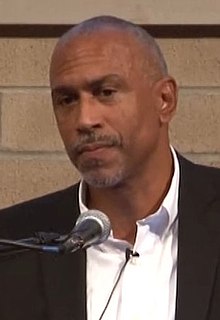A Quote by Charlie Baker
I would argue that the charter schools are really good at building programming and curriculum around the issues and the interests of the kids that they serve.
Quote Topics
Related Quotes
A lot of charter schools are non-union schools that take a lot of teachers from alternative tracks, like Teach For America. They do this in part because a lot of charter schools have very strong ideologies around how they want teachers to teach. And they find that starting with a younger or more inexperienced teacher allows them to more effectively inculcate those ideas.
Younger teachers are definitely more likely to have worked at charter schools as opposed to have just heard of them. Charter schools explicitly look, often, to hire younger people. I've even talked to people who didn't necessarily go into teaching thinking they wanted to work at a charter school or even may have been considered critics of the charter school movement, and found that it was the only way for them to get their foot in the door. So young people just have much more familiarity with the concept.
An early attempt at education choice was charter schools. These were meant to attract the best and brightest students and provide them a level of education they often could not find in their local school districts. The problem is that, of the thousands of charter schools, many are outright failures.
I support charters, but the right kind of charters. I support charters that support kids who have the highest needs. A charter should be targeting students who are in serious trouble. It should serve students who didn't succeed in public schools when it can help them. Or, at least, charters should agree to accept similar proportions of the kids with the highest needs.
If charter schools are not more successful on average than the public schools they replace, what is accomplished by demolishing public education? What is the rationale for authorizing for-profit charters or charter management organizations with high-paid executives, since their profits and high salaries are paid by taxpayers' dollars?































